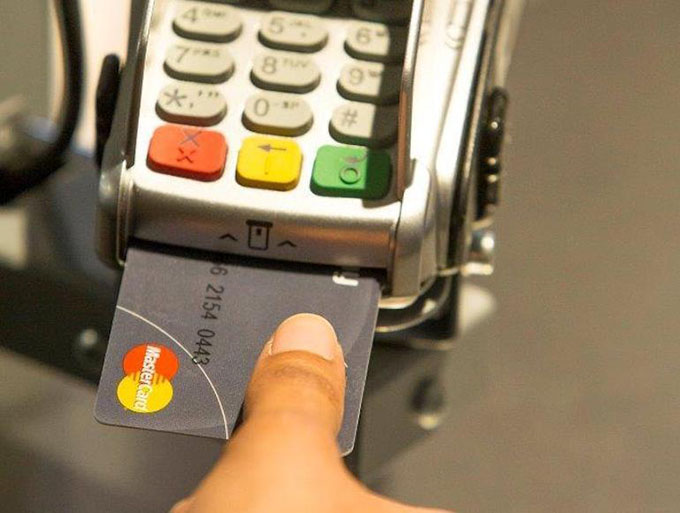- Qualcomm Launches Snapdragon 4 Gen 2 Mobile Platform
- AMD Launches Ryzen PRO 7000 Series Mobile & Desktop Platform
- Intel Launches Sleek Single-Slot Arc Pro A60 Workstation Graphics Card
- NVIDIA Announces Latest Ada Lovelace Additions: GeForce RTX 4060 Ti & RTX 4060
- Maxon Redshift With AMD Radeon GPU Rendering Support Now Available
Mastercard Tests Credit Card Design With Built-in Fingerprint Reader
When debit and credit cards first hit the market with “Tap” – the ability to tap your card on a reader in lieu of punching in a PIN code – I couldn’t believe how insecure it felt. I first learned of the feature when I was at a coffee shop and the barista told me I could pay that way; so, I tapped the card, and without any further work, the coffee (and maaaybe a danish) was paid for.
There’s an obvious upside to this Tap technology, since it allows you to pay for things with absolute ease (at least simpler purchases), but if you don’t want your card Tap-enabled, you can call your bank and get that done. If you actually balk at such a feature because you’d only be looking for increased security, well, Mastercard could soon have you covered.

Credit: Mastercard
In trials taking place in South Africa, Mastercard is testing credit cards that are protected by your fingerprint, much like our mobile phones or laptops can (sometimes) be. A fingerprint is far more complex than a 4-digit pin code, so it’d be used as an alternative rather than an addition. With the card slid into the terminal, a user could place their finger on the reader, and then proceed with their purchase.
Aside from a security enhancement, a huge upside to this technology is that preexisting terminals would be able to support it; the only ones that won’t are the ones that can’t accept a pin code to begin with.
Mastercard boasts that fingerprints are far more secure than pin codes, and admittedly, I’d much prefer a fingerprint reader than PIN code (the same applies to my smartphone), but it’d be ignorant to ignore the fact that such protections have been broken before. It will require a lot of effort on behalf of the exploiter, and there’s no guaranteed it’d work, but if you have someone that determined to access your credit card in particular, you’d hopefully find out very quickly about it.
The biggest downside, though, is the fact that these cards are simply only in testing right now. Hopefully when the technology enjoys a full rollout, Mastercard will even let people opt to use both a PIN code and fingerprint reader for even greater security.
Unfortunately, this move won’t impact credit card crimes committed online, where a fingerprint wouldn’t matter, but it’s a very good move nonetheless.




